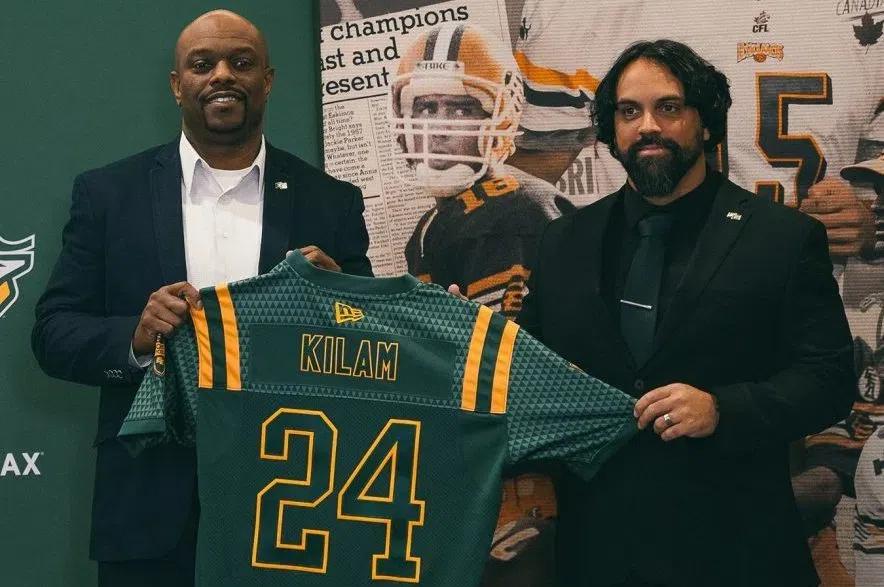MONTREAL — Montreal Mayor Valérie Plante is lending her support to a gun control advocacy group as it urges the federal government to complete a list of banned assault-style weapons before a federal buyback program comes into effect.
PolySeSouvient, a group that represents survivors and families of the 1989 École Polytechnique massacre, joined Plante at Montreal City Hall on Tuesday.
“I’m confident that the federal government has everything it needs to do what they said they would last year … and put all the assault weapons on the list in order to complete the buyback program,” Plante said.
“There’s no magic solution, there has to be different levels, different types of government solutions and this is one that only the federal government can put together.”
The gun control group met one year ago with federal Public Safety Minister Dominic LeBlanc, who the group says assured its members the list would be completed by this month.
In May 2020, more than 1,500 models of firearms were banned by the Liberal government in the aftermath of the Nova Scotia mass shooting that left 23 people dead, including the gunman.
However, PolySeSouvient says there are about 450 assault-style firearms that remain off that list. Some of those firearms, the group says, are slight variations of the weapons banned in 2020. The group wants the government’s list updated before the start of the federal government’s buyback program.
“Crime won’t finish with it, there will be violence again, but a very, very dangerous tool will be off of our streets,” said Nathalie Provost, a survivor of the Dec. 6, 1989, École Polytechnique massacre, an antifeminist mass shooting that killed 14 women.
Provost says there is concern that owners of weapons prohibited four years ago will simply take the buyback money to buy new assault weapon models that don’t appear on the list.
“If you begin a buyback program with an incomplete list, it’s kind of a waste because people will be able to take back their money and buy new assault-style weapons,” Provost said.
LeBlanc has said the long-promised gun buyback would begin this fall. First, the government plans to buy banned firearms from retail stores and have them destroyed. An individual buyback program for people who own prohibited weapons is scheduled to begin next year.
Gabriel Brunet, a spokesman for LeBlanc, said approximately 2,000 firearm models will be covered by the compensation program and both phases are expected to be up and running by the time an amnesty order expires on Oct. 31, 2025.
“By participating in the program, owners and businesses will be fairly compensated for their firearms — but if they decide not to participate, not only will they not receive compensation, they will still be obligated to make them inoperable by the time the order expires, or face criminal liability,” Brunet said in an emailed statement.
Heidi Rathjen, coordinator of the gun control group, said there are hundreds of weapons that manufacturers have made that are obviously assault weapons, but are not restricted, meaning they are regulated the same as hunting rifles.
In May 2020, a first order-in-council by then-public security minister Bill Blair banned 1,500 models of assault-style firearms and variants.
“We’re counting on Minister LeBlanc to prohibit through a second order-in-council before the launch of the buyback in order to make sure the buyback includes all assault weapons,” Rathjen said.
“The industry does adapt and that’s one of the reasons that we need a permanent ban on assault weapons because they will … specifically design (a weapon) to circumvent the criteria that exists.”
The 35th anniversary of the Montreal Massacre will be marked next month.
This report by The Canadian Press was first published Nov. 19, 2024.
Sidhartha Banerjee, The Canadian Press







